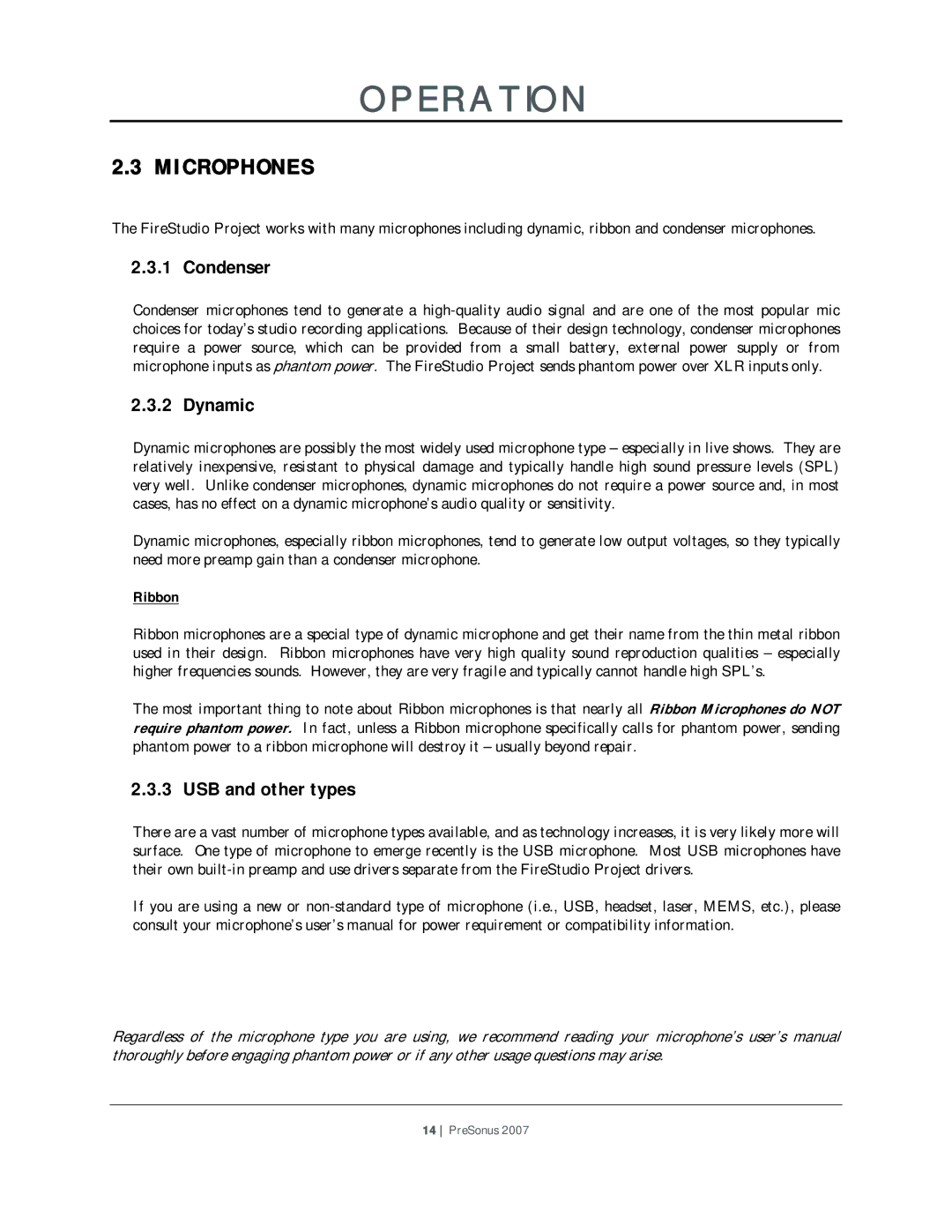
OPERATION
2.3 MICROPHONES
The FireStudio Project works with many microphones including dynamic, ribbon and condenser microphones.
2.3.1 Condenser
Condenser microphones tend to generate a
2.3.2 Dynamic
Dynamic microphones are possibly the most widely used microphone type – especially in live shows. They are relatively inexpensive, resistant to physical damage and typically handle high sound pressure levels (SPL) very well. Unlike condenser microphones, dynamic microphones do not require a power source and, in most cases, has no effect on a dynamic microphone’s audio quality or sensitivity.
Dynamic microphones, especially ribbon microphones, tend to generate low output voltages, so they typically need more preamp gain than a condenser microphone.
Ribbon
Ribbon microphones are a special type of dynamic microphone and get their name from the thin metal ribbon used in their design. Ribbon microphones have very high quality sound reproduction qualities – especially higher frequencies sounds. However, they are very fragile and typically cannot handle high SPL’s.
The most important thing to note about Ribbon microphones is that nearly all Ribbon Microphones do NOT require phantom power. In fact, unless a Ribbon microphone specifically calls for phantom power, sending phantom power to a ribbon microphone will destroy it – usually beyond repair.
2.3.3 USB and other types
There are a vast number of microphone types available, and as technology increases, it is very likely more will surface. One type of microphone to emerge recently is the USB microphone. Most USB microphones have their own
If you are using a new or
Regardless of the microphone type you are using, we recommend reading your microphone’s user’s manual thoroughly before engaging phantom power or if any other usage questions may arise.
14 PreSonus 2007
